Student protesters remain as Columbia University's afternoon vacate deadline passes
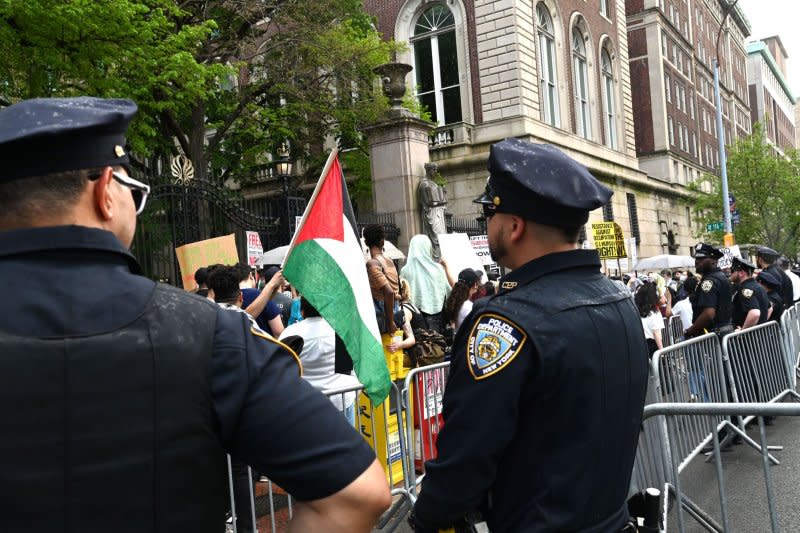
April 29 (UPI) -- Columbia University President Minouche Shafik on Monday said talks have broken down with student protesters on campus as a deadline passed to vacate encampments over Israel's occupation of Gaza and the university's investments in Israeli-backed financial institutions.
"The university should listen to us and their student body," a student told CNN live on television as Columbia students defied the university's order to vacate after the 2 p.m. EDT deadline.
On Monday, protesters received notices from Columbia to vacate the encampments by the deadline or be suspended "pending further investigation," according to NBC News, and that those students would be barred from finishing their spring 2024 semester.
In a letter Monday to the university, Shafik said that since Wednesday, "a small group of academic leaders has been in constructive dialogue with student organizers to find a path that would result in the dismantling of the encampment and adherence to university policies going forward."
She added: "Regretfully, we were not able to come to an agreement."
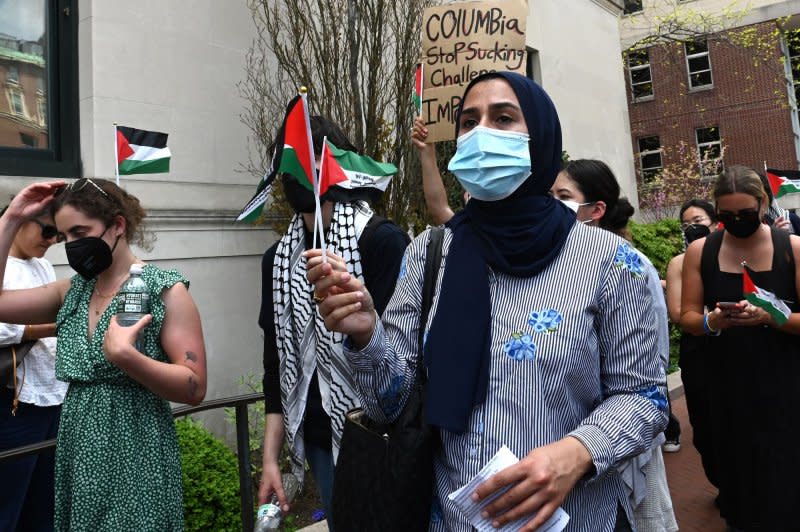
Shafik on Monday urged "those in the encampment to voluntarily disperse," Shafik wrote in her letter.
"We are consulting with a broader group in our community to explore alternative internal options to end this crisis as soon as possible."
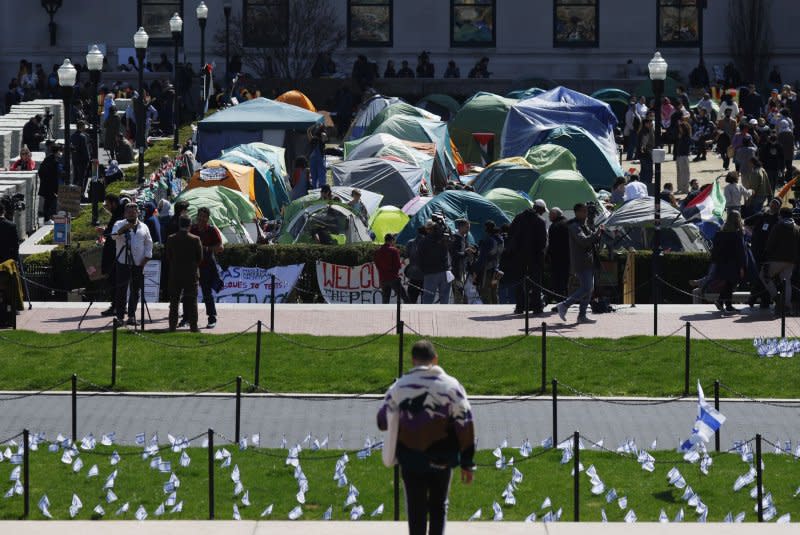
"This encampment is a movement for social justice," the student said Monday on CNN after Shafik's 2 p.m. deadline.
The White House gave a press briefing in the afternoon after the 2 p.m. deadline.
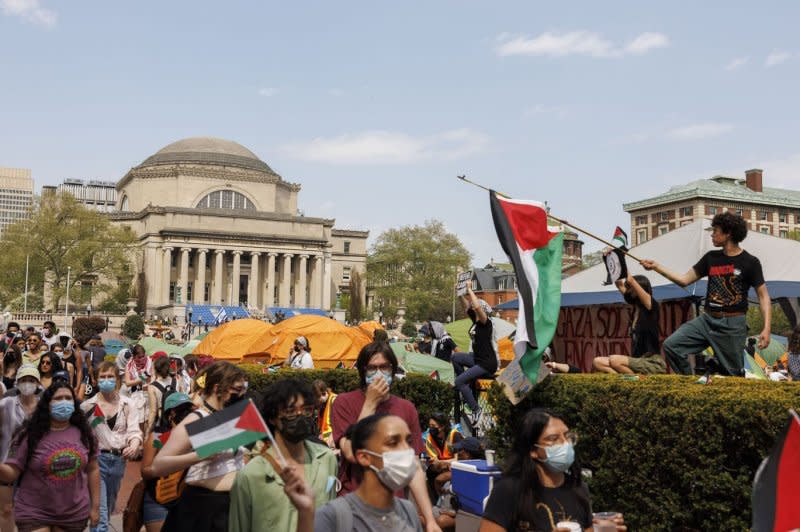
Press Secretary Karine Jean-Pierre, commenting about the University of Southern California's recently cancelled graduation over security concerns, said American college campuses have "to decide what's right for their student body."
She called for a condemnation of violent or hateful rhetoric on college campuses, but said the Biden administration believes in peaceful protests "weather it's at a commencement at their school or any other place in this country."
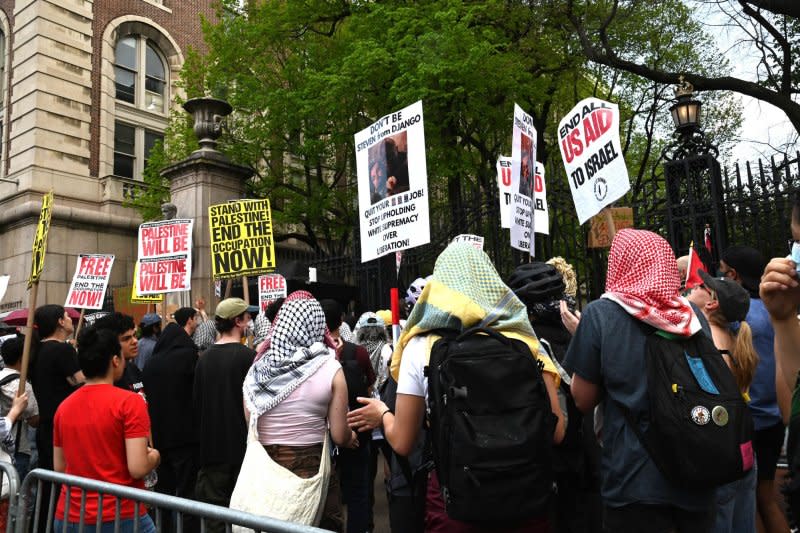
DISCLOSE! DIVEST! WE WILL NOT STOP, WE WILL NOT REST!! ❤️
Hundreds of Columbia University students are gathered for an emergency rally to protect the Gaza Solidarity Encampment. We will continue until our demands are met. We will not be intimidated. #cu4Palestine pic.twitter.com/QNPeDhuVcq— Columbia Students for Justice in Palestine (@ColumbiaSJP) April 29, 2024
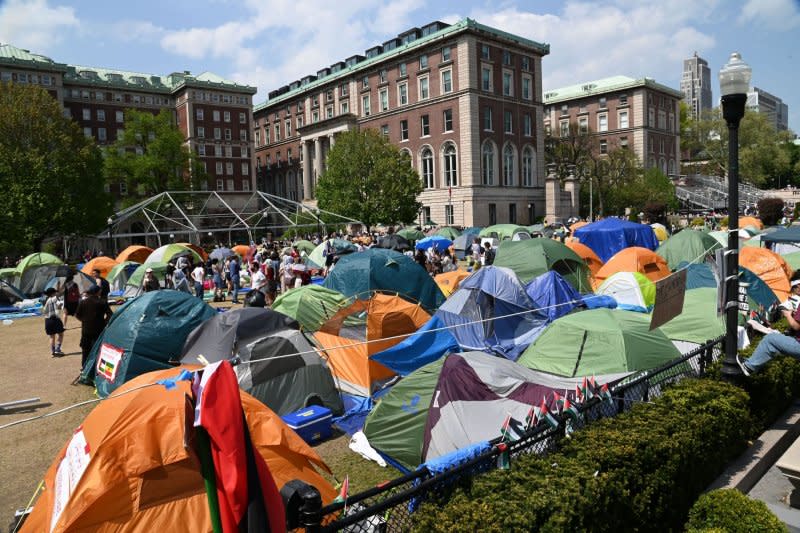
Shafik said that while Columbia does "regret that we need to take these actions," the university "must restore order to the campus that all students can complete their work for the term, study for exams and feel welcome in the community."
She cited the upcoming May 15 graduation as among reasons why the university will be taking steps to temporarily clear the encampments.
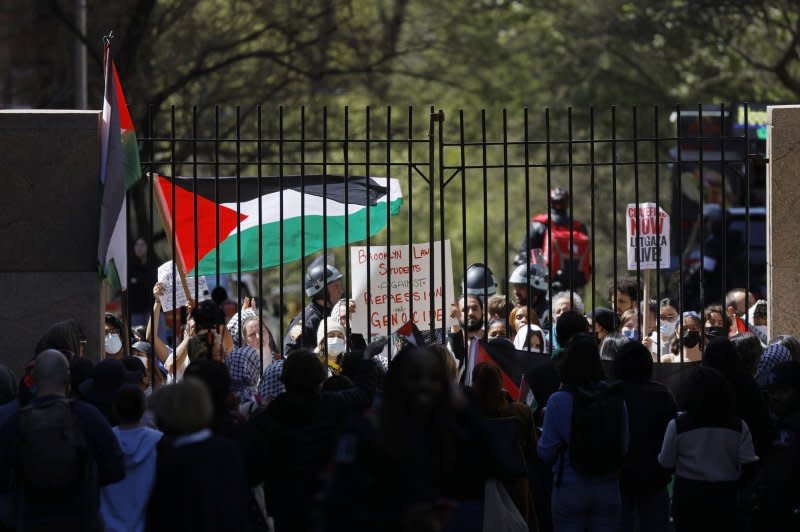
"We owe it to all of our graduates and their loved ones to honor their achievement," she said, adding her reassurance that Columbia University "will indeed hold a commencement."
"Please recall that many in this graduating class did not get a celebration when graduating from high school because of the pandemic, and many of them are the first in their families to earn a University degree," Shafik wrote.
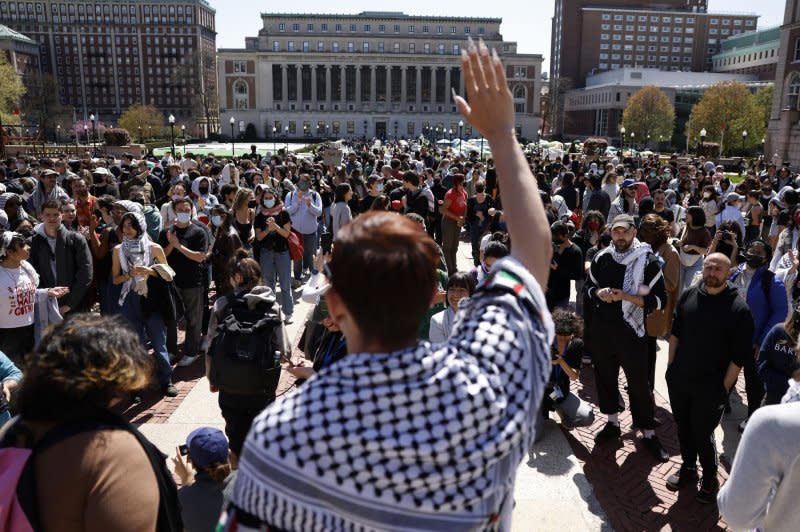
Pro-Palestinian protests and encampments have erupted on college campuses across the United States.
More than 100 people on Friday set up tents in front of the administrative building of the University of North Carolina at Chapel Hill the same day nearly 200 students linked arms at Illinois' Northwestern University to protest what they called censorship from the university, and they called for Northwestern to divest funds from Israel.
At Columbia, Shafik said Monday that many of the university's students, Jewish or not, "have found the atmosphere intolerable in recent weeks. Many have left campus, and that is a tragedy."
"One group's rights to express their views cannot come at the expense of another group's right to speak, teach and learn," she wrote.
Student protest leaders said Friday they were in negotiating with university leadership, but that the university's offers fell short regarding divestment from Israel-linked organizations and amnesty for students and faculty who have been punished for their involvement in the protests.
Protests and counter-protests continued Friday at Columbia, leading to hundreds of pro-Israel demonstrators holding images of hostages taken by Hamas on Oct. 7 and chanting "Bring them home now! Alive!"
Later in the day, the space around Columbia became occupied by a large group of pro-Palestine Hasidic Jews holding signs that read "All Palestine must be returned to Palestinian Sovereignty" and "Judaism Rejects Zionism."
House Speaker Mike Johnson days ago in New York City had called on Shafik to resign from her job.
That came two days after the university president announced in an email to the campus that Columbia would hold classes virtually after over 100 protesters had been arrested as U.S. lawmakers proceeded to call for Shafik's removal over her handling of the matter.
New York law-enforcement officials said April 18 they had arrested more than 108 people at the school.
Protesters at colleges throughout the United States are mainly calling for their respective universities to cut financial ties with entities connected to Israel in response to the war in Gaza.
On Monday, Shafik made it clear that Columbia University "will not divest from Israel." But Columbia had offered to develop "an expedited timeline for review of new proposals from the students by the Advisory Committee for Socially Responsible Investing, the body which considers divestment matters."
The university also offered "to publish a process for students to access a list of Columbia's direct investment holdings, and to increase the frequency of updates to that list of holdings," according to Shafik, and "investments in health and education in Gaza, including supporting early childhood development and support for displaced scholars."
But the divestment call from Israeli-backed financial institutions has now spread to otherwise normally quiet elections like Pennsylvania's race for state treasurer.
After Hamas' Oct. 7 attack, the state's elected Republican Treasurer Stacy Garrity doubled down on Pennsylvania's investments in Israeli bonds by increasing it to $56 million, a $20 million jump.
Pennsylvania is one of a handful of state's with Republican state treasurer's who have in recent months invested more into Israeli bonds as state investments for things such as pensions.
But the Democratic nominee, Erin McClelland, has been critical of the state's direct investments in foreign holdings, citing Israel's labor protests and their credit downgrades since the October war began.
Emory University, University of North Carolina at Chapel Hill, Illinois' Northwestern University, Georgetown University, American University, George Mason and the University of Maryland are among some campuses protesting across the United States.

